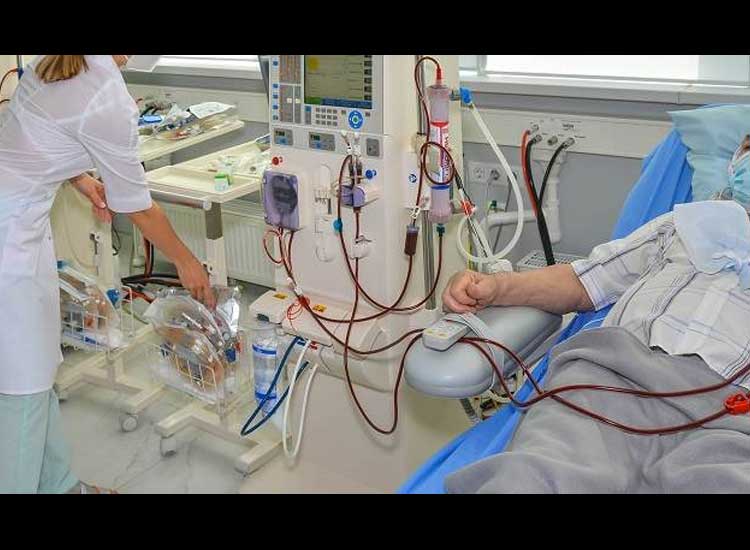What is Kidney Failure?
Kidney failure is a condition where one or both kidneys can no longer function properly. Sometimes, kidney failure is temporary and can appear quickly.
But on the other hand, kidney failure can also be a chronic condition that will get worse slowly over a long time.
Therefore, kidney failure can be divided into two main types, namely chronic and acute kidney failure . It is important to remember that the kidneys are a pair of organs located in the lower back area of the body.
This organ has several important functions in the body. One of them is removing toxins or waste from the body.
The poison will later enter the bladder and be excreted when a person urinates. If the kidneys lose their ability to filter waste or toxins from the blood, kidney failure will occur.
Causes of Kidney Failure
The majority of acute kidney failure occurs due to reduced blood flow to the kidneys. Here are some things that can reduce blood flow to the kidneys:
- Low blood volume.
- The amount of blood pumped by the heart is below normal.
- Disorders of blood vessels.
- The effect of certain drugs can interfere with the blood supply to the kidneys or even disrupt the kidneys. For example, non-steroidal anti-inflammatory drugs (NSAIDs), drugs for hypertension, and certain antibiotics.
- Dye liquid, used in body imaging and X-ray tests.
Apart from reduced blood flow to the kidneys, acute kidney failure can also be triggered by two causes, namely:
- Blocked urinary tract.
- Direct damage to the kidneys.
Risk Factors for Kidney Failure
There are several things that can increase the risk of developing acute kidney failure, namely:
Have a high risk of suffering from urinary tract obstruction.
- Suffering from diabetes .
- Have liver disease.
- Blood vessels in the arms and legs are blocked.
- Got a serious infection.
- Experiencing dehydration.
- Aged 65 years or older.
- Currently in intensive care in hospital.
Symptoms of Kidney Failure
In the early phase, kidney failure often does not show any symptoms and can only be detected through laboratory tests.
However, this disease can develop very quickly, causing sufferers to experience several symptoms, such as:
- Reduced urine production.
- Dazed or confused.
- Nausea and vomiting.
- Hard to breathe.
- Fluid buildup in the body or edema.
- Fatigue.
- Dehydration.
- Pain in the chest.
- Back pain.
- Stomach ache.
- High blood pressure or hypertension.
- Sleep disorders.
In addition, keep in mind that kidney failure can cause varying symptoms in each person.
The symptoms that appear will depend on the severity of the sufferer.
Diagnosis of Kidney Failure
Doctors will use various tests to measure kidney function and diagnose kidney failure.
- If the doctor suspects that someone is at risk of kidney failure, the doctor will recommend several tests such as:
- Blood tests, which can show how well the kidneys remove waste from the blood.
- Follow-up imaging, which may show kidney abnormalities or disorders (blockage).
- Urine tests, which measure the amount of urine or certain substances in the urine, such as protein or blood.
Prevention of Kidney Failure
Here are several ways you can prevent kidney failure:
- Follow the instructions on the label when taking over-the-counter medications. For example, ibuprofen and aspirin .
- If a doctor prescribes medication, make sure to take the medication according to the instructions. Do not reduce or exceed the prescribed dose.
- Consult a doctor to treat kidney disorders. Follow your doctor’s recommendations to protect your body from diseases that can trigger kidney failure.
- Maintain and manage current health conditions. For example, people with diabetes need to keep their blood sugar levels stable.
- Live a healthy lifestyle. Doing regular exercise, maintaining a healthy diet, and avoiding alcoholic drinks will help reduce the risk of kidney failure.
Rekomendasi Link :


No Responses